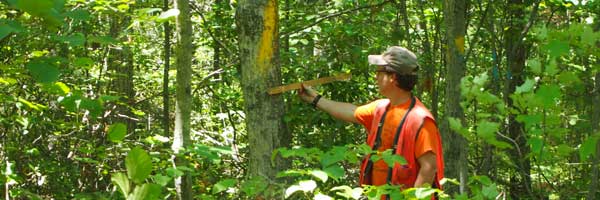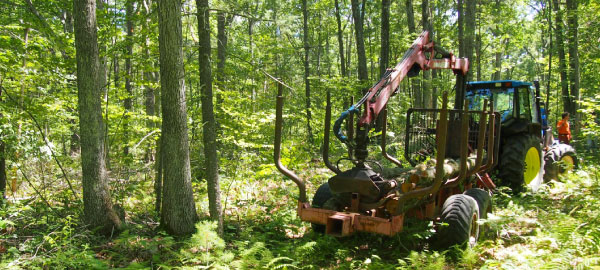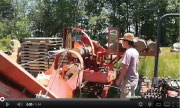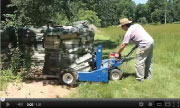We Practice Sustainable Forestry

Forestry is who we are and is the foundation of our business. In theory, forestry is synonymous with sustainability. Unfortunately, in practice, "forestry" is often merely the harvesting of timber. So by saying "sustainable forestry," we are talking about stewardship of the forest. It is harvesting trees for wood products in a way that maintains or improves the biodiversity, productivity, regeneration capacity and vitality of the forest. Forests that are sustainably managed are more likely to fulfill ecological as well as economic and social functions now and in the future. In other words, by understanding what to cut and what not to cut, a conscientious forester can increase the economic value of the forest while also increasing its ecological value. Without the guidance of a trained forester, timber harvesting is just about extracting a resource from the forest and frequently results in a degraded forest.
Here in Massachusetts, we have a long history of providing incentives for practicing sustainable forestry on private lands. One of these incentives is the Chapter 61 law, which lowers property taxes to levels commensurate with the specific use of the land, whether agriculture, forestry, or both. In exchange, landowners agree to practice sustainable forestry and are required to hire a professionally trained forester. Recently, Massachusetts landowners have been given the option to go a step further and have their land "green-certified" through the Forest Stewardship Council (FSC), an independent non-governmental organization whose mission is to promote responsible forestry. The state offers these incentives because it recognizes that most of the open space that make our towns such desirable places to live is privately owned and provides countless public benefits such as clean water, clean air, recreational opportunities and locally grown agricultural and forest products. Currently, all of Broad Arrow Firewood's wood is from FSC green-certified forestland that is also classified under Ch.61 program. Additionally, these lands have been certified as Tree Farms by the American Tree Farm System.
In addition to this, we actively manage our forest to improve wildlife habitat through a variety of practices recommended by the MA Division of Fisheries and Wildlife.
For an overview of how timber harvesting can improve wildlife habitat, visit the MA Division of Fisheries and Wildlife.



